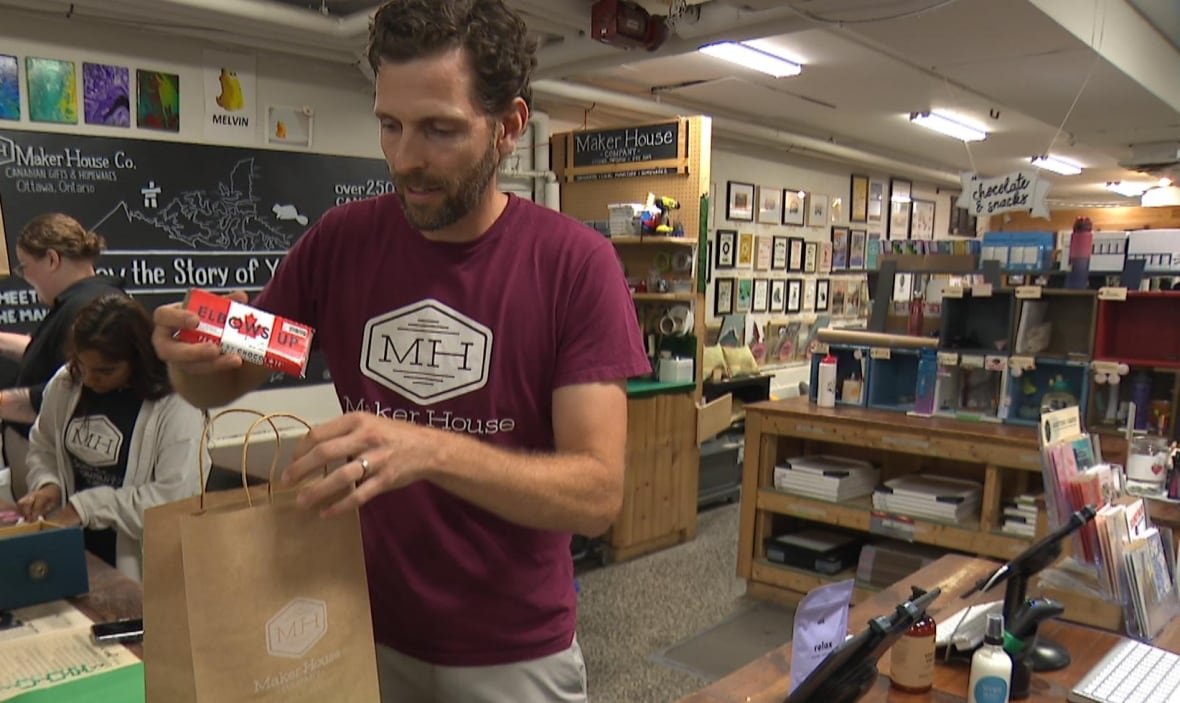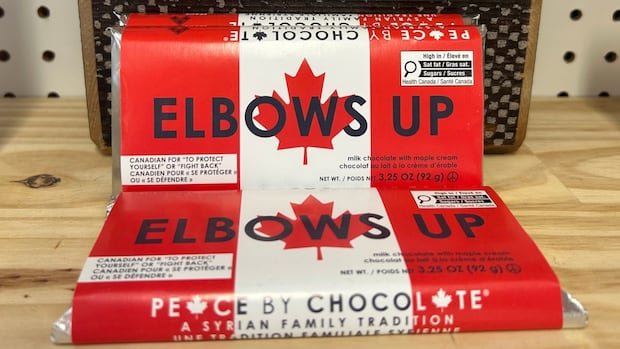Maker House, an Ottawa gift shop specializing in Canadian-made products, is experiencing a surge in sales this year. The shop offers a variety of items, including furniture, food, and greeting cards, all sourced from local Canadian artisans.
Popular items include a T-shirt featuring the “elbows up” slogan and chocolate bars with Canadian-themed packaging like “eh.”
According to founder Gareth Davies, sales have seen a significant increase, particularly since February when U.S. President Donald Trump announced potential tariffs on Canadian goods and made controversial statements about Canada. This led to a spike in sales as Canadians rallied behind the Buy Canadian movement in response to the perceived threats.
Despite initial concerns that the fervor would fade, sales at Maker House have remained strong, showing an 80% increase year-over-year, with a notable uptick leading up to Canada Day.
Davies expressed gratitude for the support, likening it to a national unity message amidst economic uncertainties. He believes that as long as tensions persist, the momentum of Canadian solidarity will endure.

The ongoing commitment to buying Canadian products is evident in a recent survey, which found that a majority of Canadians are actively supporting local businesses and favor stores that prioritize Canadian-made goods. Additionally, Canadian travel to the U.S. has notably declined since Trump’s presidency began.
Trump’s continued rhetoric and tariff threats against Canada have only reinforced the resolve of many Canadians to support domestic products and avoid U.S. travel. The media coverage of these issues further amplifies public sentiment in favor of the boycott.
Despite potential challenges for some individuals, such as Ottawa resident Emily Olmstead who has family in the U.S., many Canadians are embracing the Buy Canadian movement as a form of political expression and support for the national economy.

The Buy Canadian movement’s impact is difficult to measure precisely, but consumer sentiment strongly supports the initiative. An online survey revealed that a significant portion of Canadians favor Canadian products and encourage retailers to prioritize local goods.
With a positive outlook for the Canadian-made industry, businesses are reporting increased sales of domestic products, indicating a sustained preference for Canadian goods over American imports.
While the longevity of the boycott remains uncertain, experts suggest that the movement could become ingrained in Canadian consumer habits, potentially outlasting the current political climate.

